The usually quiet and “sanitised” campus of Jamia Millia Islamia (JMI) in south-east Delhi is buzzing. Posters with quotes from Malcolm X to Ambedkar to Iqbal hang throughout the campus. The university, located in the national capital’s Jamia Nagar has political graffiti sprayed on its once bleak walls – “no censorship, express without fear”, reads one.
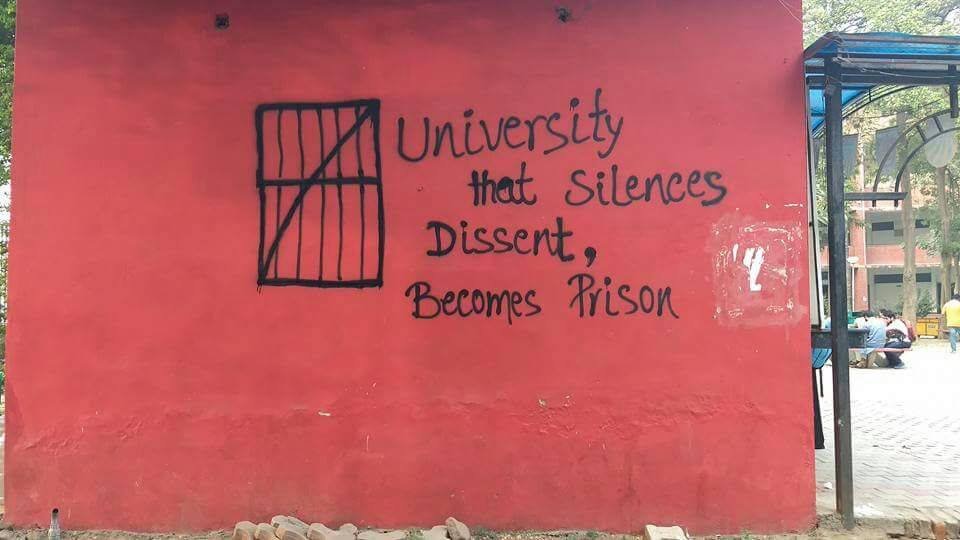
Angry students have been protesting at the campus for days now, with many sitting on hunger strike for eight days and counting. Their demand? Setting up of a Students’ Union.
‘Break 12 years of silence’
The Students’ Union, an integral part in most central universities, was disbanded in JMI in 2006. Since then, students have been demanding setting up of a union and holding elections for the same. In fact, JMI is the only prominent central university in Delhi which doesn’t have a students’ union. The other prominent ones – JNU and DU – have a robust union and elections.
The decade-long struggle has culminated into a larger movement this year, in which more than 15 groups are taking part. Since October 5, students have been sitting on dharna and now they have resorted to a relay hunger strike.
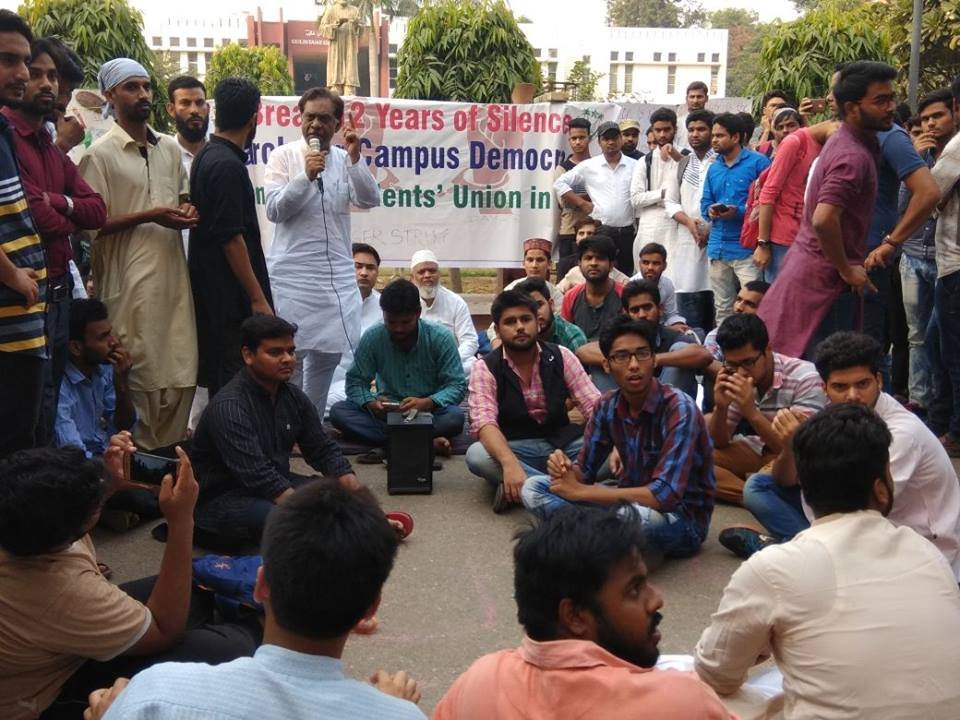
Many students who I spoke to say that this year’s movement is seeing a mass support due to Jamia administration’s inefficiency. Many say that the University is being run by bureaucrats who pay no attention to student issues.
“Jamia administration doesn’t care for the students. The bureaucracy is corrupt and completely inefficient. They don’t care about the issues which students are facing, such as non-availability of hostels for all,” says Ateeb Khan, a student. “Hence, we are a demanding that a democratic students’ union be reinstated. It is our fundamental right,” he added.
The hunger strike, in its eighth day now, has taken a toll on Shamsher Hassan Ghazi, a post-graduate student in English. He’s had to be taken to Holy Family Hospital in nearby Okhla where he’s being treated.
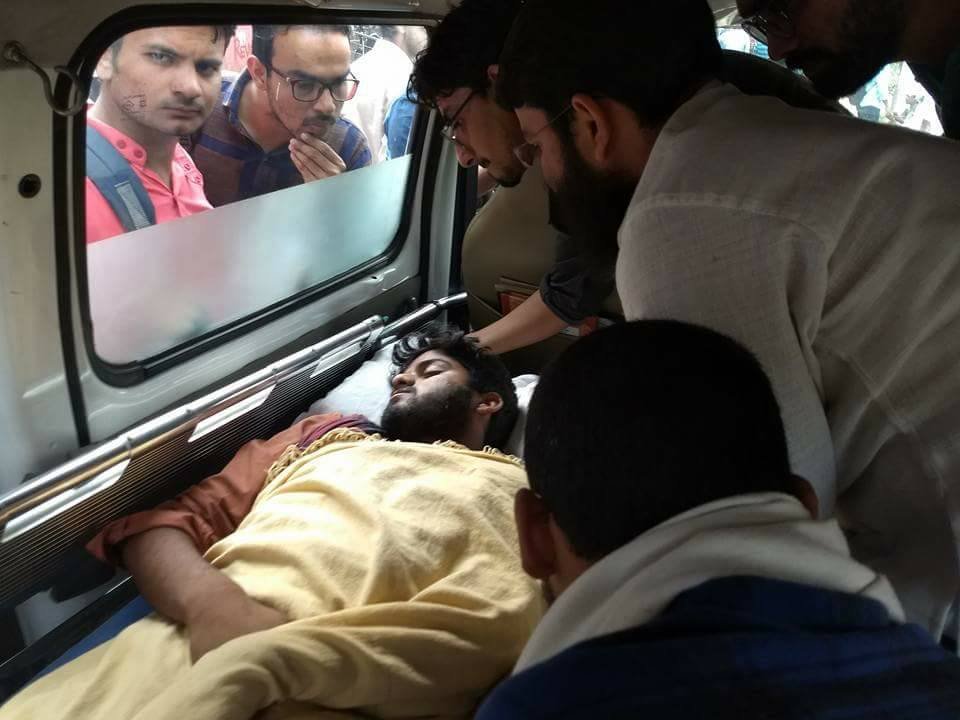
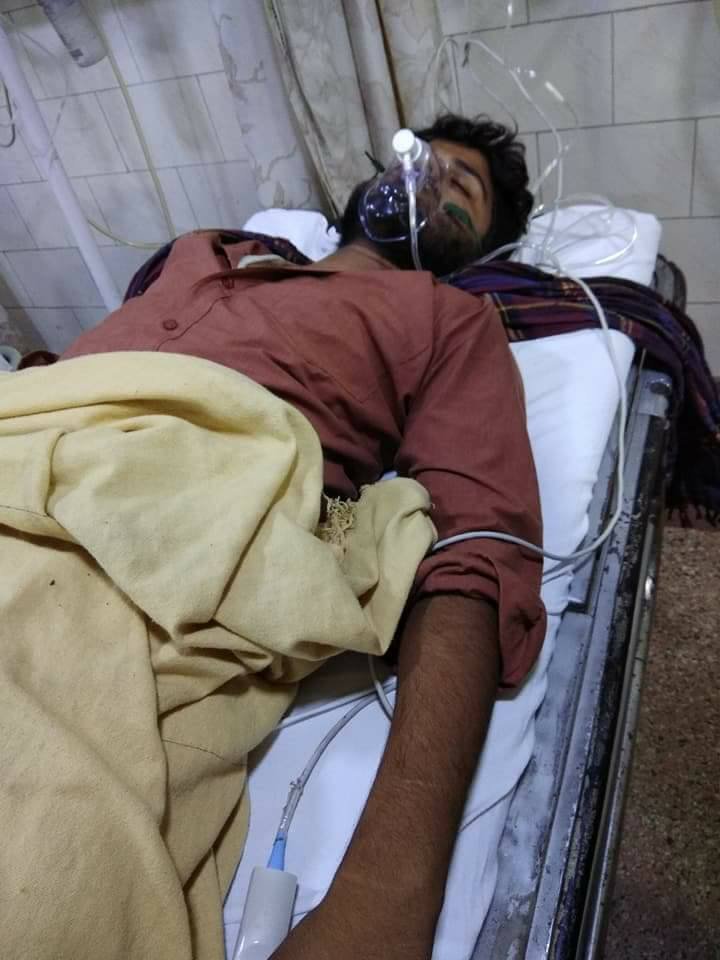
Another student on hunger strike, Meeran Haider, who’s pursuing his MPhil, had to be hospitalised, due to his failing health.
Why the ban
The students’ union elections were banned in 2006 as the administration felt the students’ union was exercising power in areas where it had no jurisdiction, reported The Hindu.
The reasons for the ban are also a matter of conflict and many RTIs and a PIL have been filed in the Delhi High Court to resolve the issue.
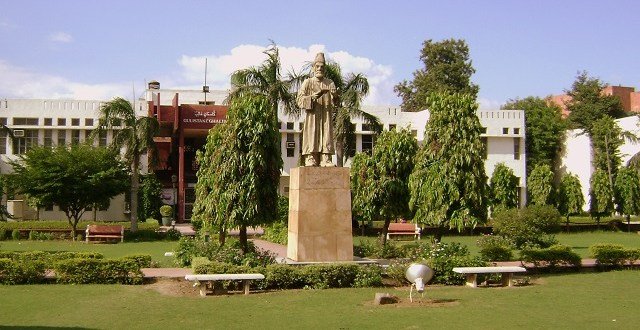
Polls were banned in 2006 over allegations by Jamia that student representatives had started interfering in administrative work. In 2011, three former students moved the Delhi HC demanding a students’ union, reported The Indian Express. The matter is sub-judice.
Right to dissent
It is indeed surprising – and many students echo this thought – that a central varsity with a rich history of dissent and being associated with the anti-imperialist movement has become completely apolitical.
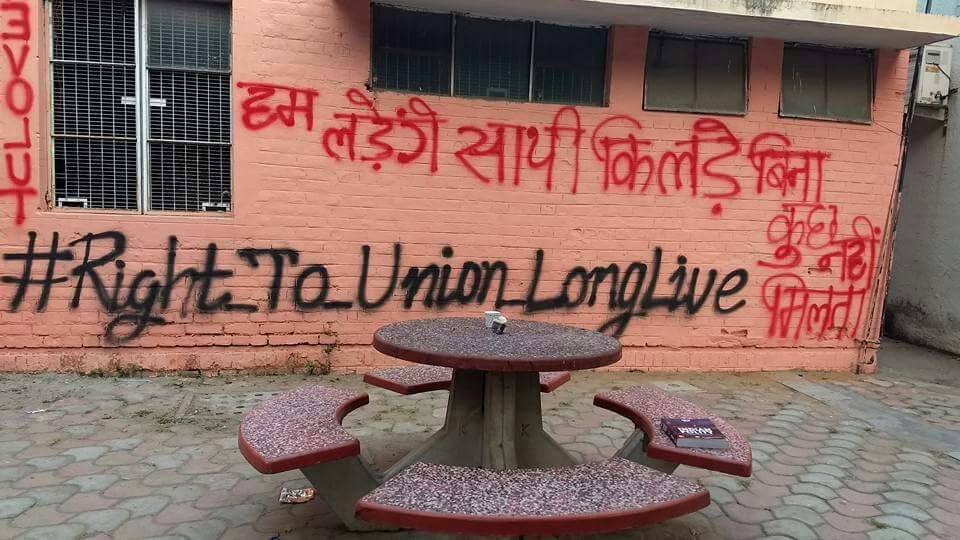
Protestors also have a list of other student-centric demands which they believe can only be fulfilled once a democratically elected union is set up. Some of these demands are: setting up of a 24-hour library, a working anti-sexual harassment cell, and so on.
“The Jamia administration treats the university as their personal jaageer (fiefdom). They are completely anti-students and routinely issue diktats without even consulting anyone. Constant fee hikes, delay in declaration of results, regular paper leaks – you name it, the bureaucracy here is completely inefficient and corrupt. We want to ensure these things don’t happen,” says Ihtesam, a student of BA programme.
He, and many others, are hopeful that the current Vice-Chancellor, Talat Mahmood, will pay heed to their demands.
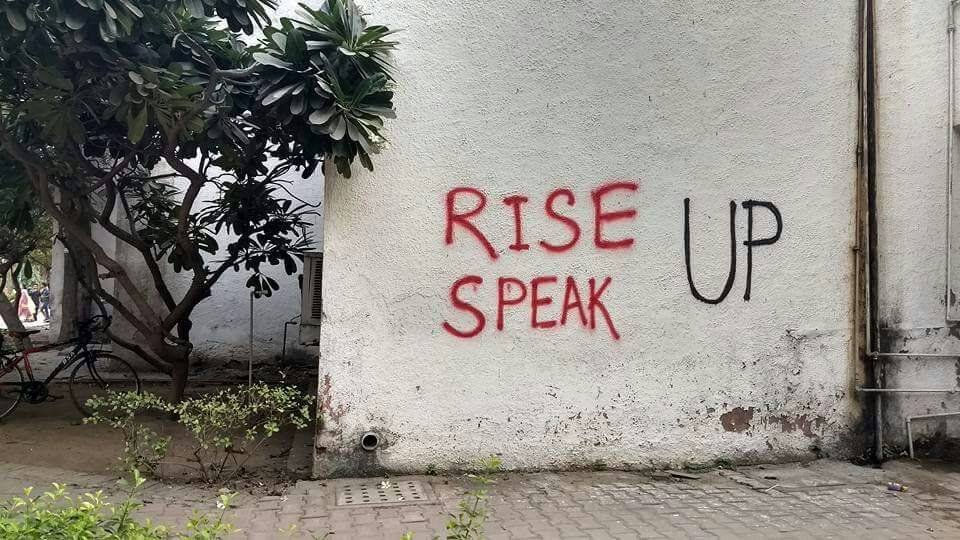
What the administration says
The administration on receiving the memorandum (pictured below) from the students said that the university had no objections to the formation of a students’ union but it could not give the go-ahead as the matter was sub judice.
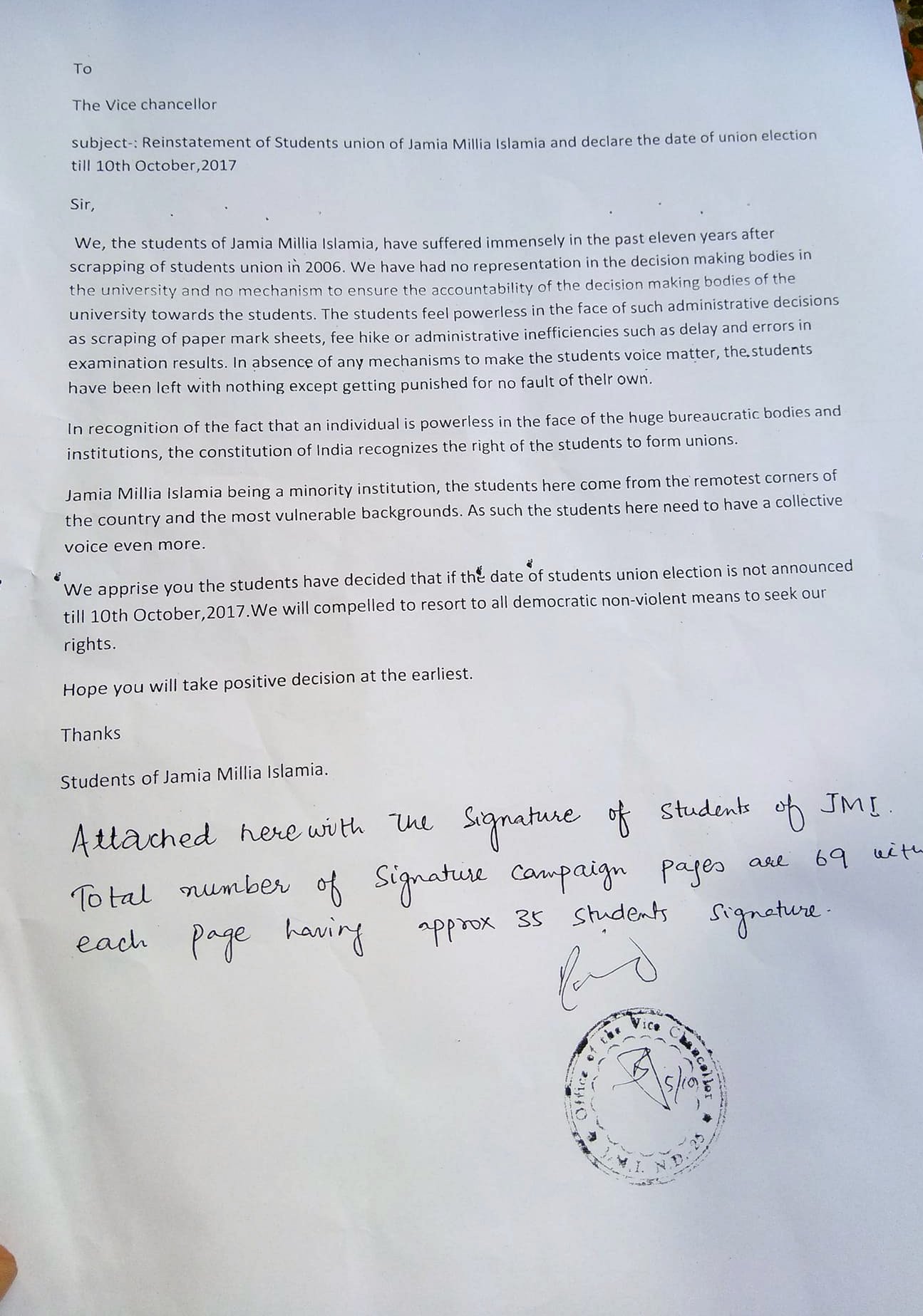
Jamia V-C Talat Ahmad told The Indian Express, “Let them march… The matter is sub-judice, I cannot take any decision.”
Ahmad appealed to the students sitting on dharna to call off their protest and come for talks to resolve the issue.
However, students claimed that the administration was looking for an “escape route” by stating that its hands were tied since the matter was sub-judice, reported The Hindu.
No space for dissent
Students also say that the Jamia administration has come down heavily on any form of dissent, therefore creating an environment of fear over the years. As a result, the campus has been completely depoliticised.
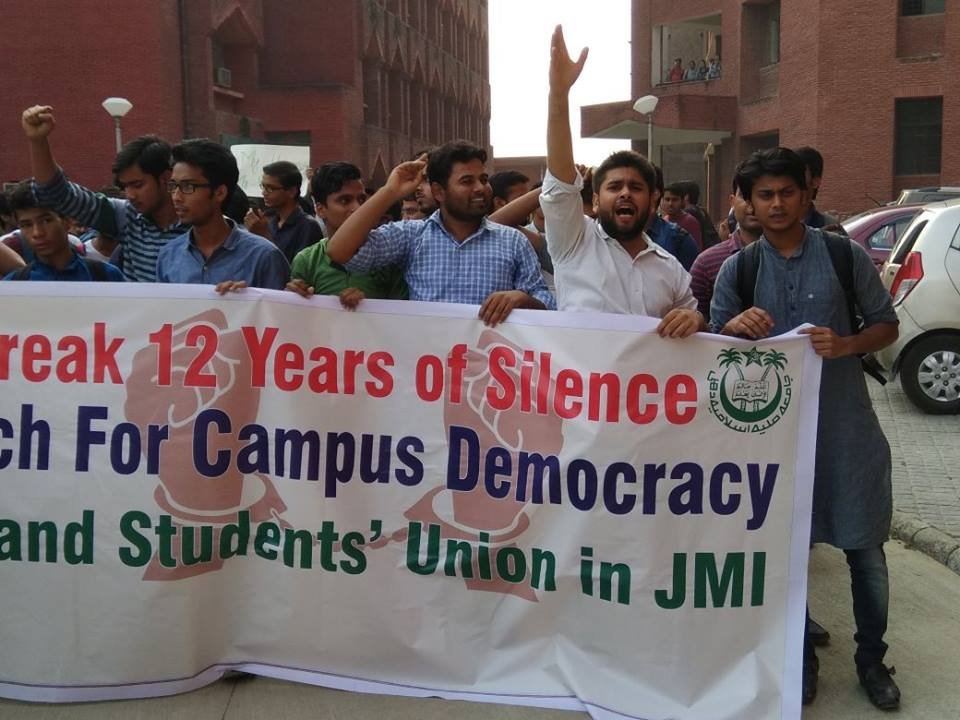
“We have been trying to spread awareness among students about the need for a Students Body, among other things. For this, we conducted room-to-room campaigns, where we sang songs, draw graffiti, etc to make people aware of the reasons for our protests. But still, there are a lot of completely apolitical students who don’t care at all,” says Abdul Hamid, a mass communication student.
What about ‘apolitical’ students?
What about the “apolitical” students, which inarguably form the majority in most colleges in India?
Umang, who’s doing her Masters in Biotech, says, “I’m completely cut-off from all this. I don’t know what the protests will achieve. But, we should have a union. This is a university, not a school. They [protesters] have a fair demand.”
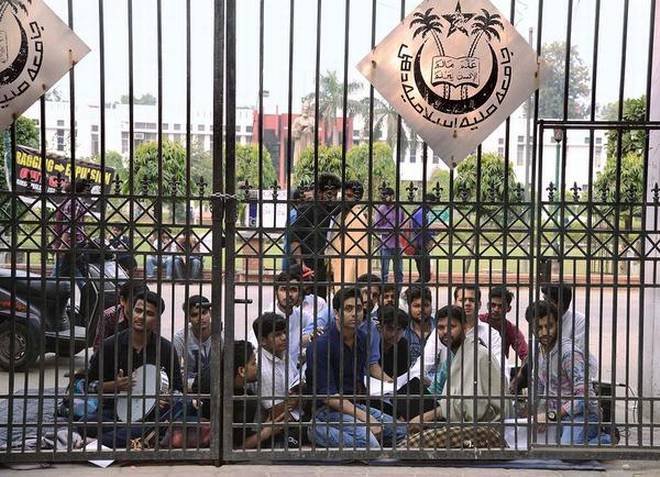
Fareena, a psychology student says, “I’m completely unaware of these protests. I don’t know what’s happening except the fact that some students are on a hunger strike for unionisation.”
“Does it affect you?”
“My dad’s here. I gotta go.”
Mudassir, a student of Mechanical Engineering, who reluctantly agrees to speak, says, “I’m not the right person to talk here… I’m not political. But one thing is clear: students ki awaaz ko dabaya jaa raha hai (Our voices are being stifled). They disbanded the union due to some instances of violence on campus. But after that, nobody at Jamia listens to us.”
He, and many others, say students face harassment continuously and have nowhere to go. “Sometimes, security threatens us… Sometimes, they’ll deny scholarships and admission without giving any reasons.If we have a union, at least we can speak our mind freely without the fear of being punished,” he adds.
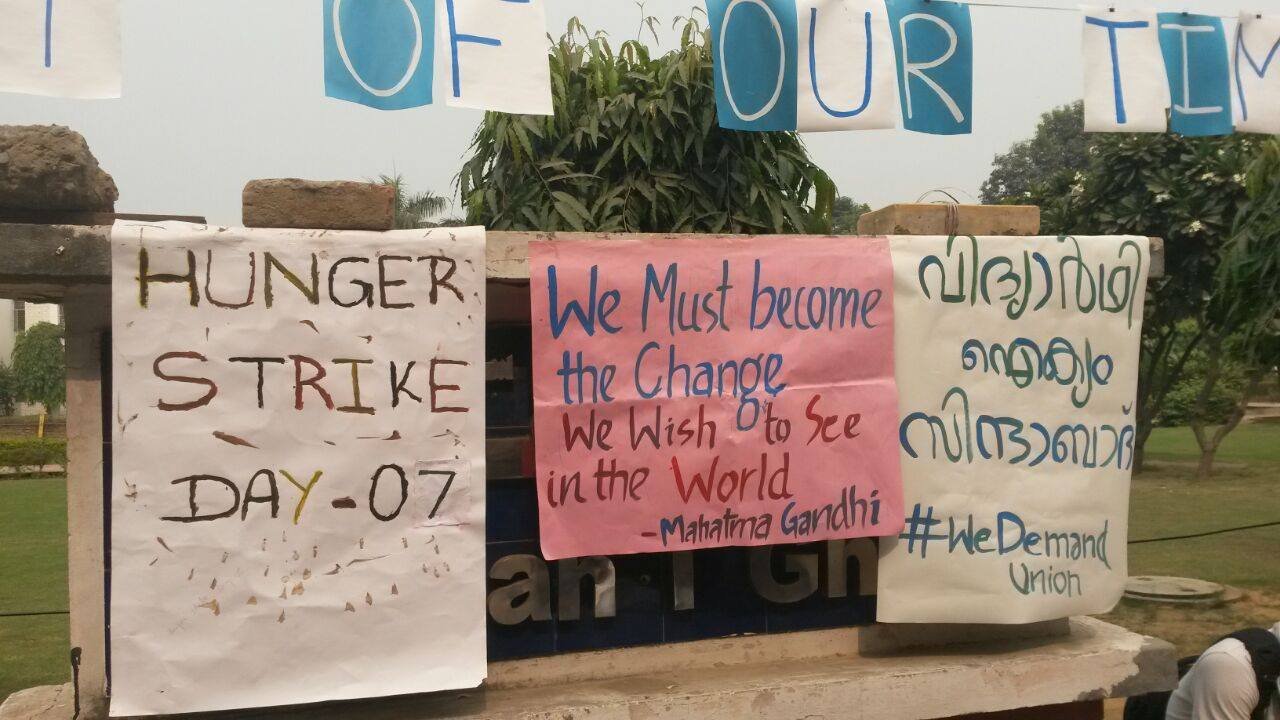
Indeed, the larger question, then, currently driving the Jamia protests is one that has been asked at various times across educational institutes in India: The question of student politics. There are those who say students shouldn’t engage in politics, and vice-versa.
Student unions can be empowering tools for students, giving them a say in every matter, but they can be hijacked by larger political parties with muscle power and money. However, this doesn’t mean authorities deny adult students the agency to at least have a democratic body to address their concerns.
As the day draws to a close, a young woman says to her friend, “In logon ko lagta hai k dafli bachakar aur gaane gaane se kranti kar lenge (These people think they can bring revolution by singing songs and chanting slogans).”
Behind us, slogans of “Inquilab Zindabad” reverberate the air as news comes in that the V-C has agreed to the protestors’ demands “in-principle”; and even Delhi’s gloomy smog-filled skies seem to light up, if only for a moment.

















